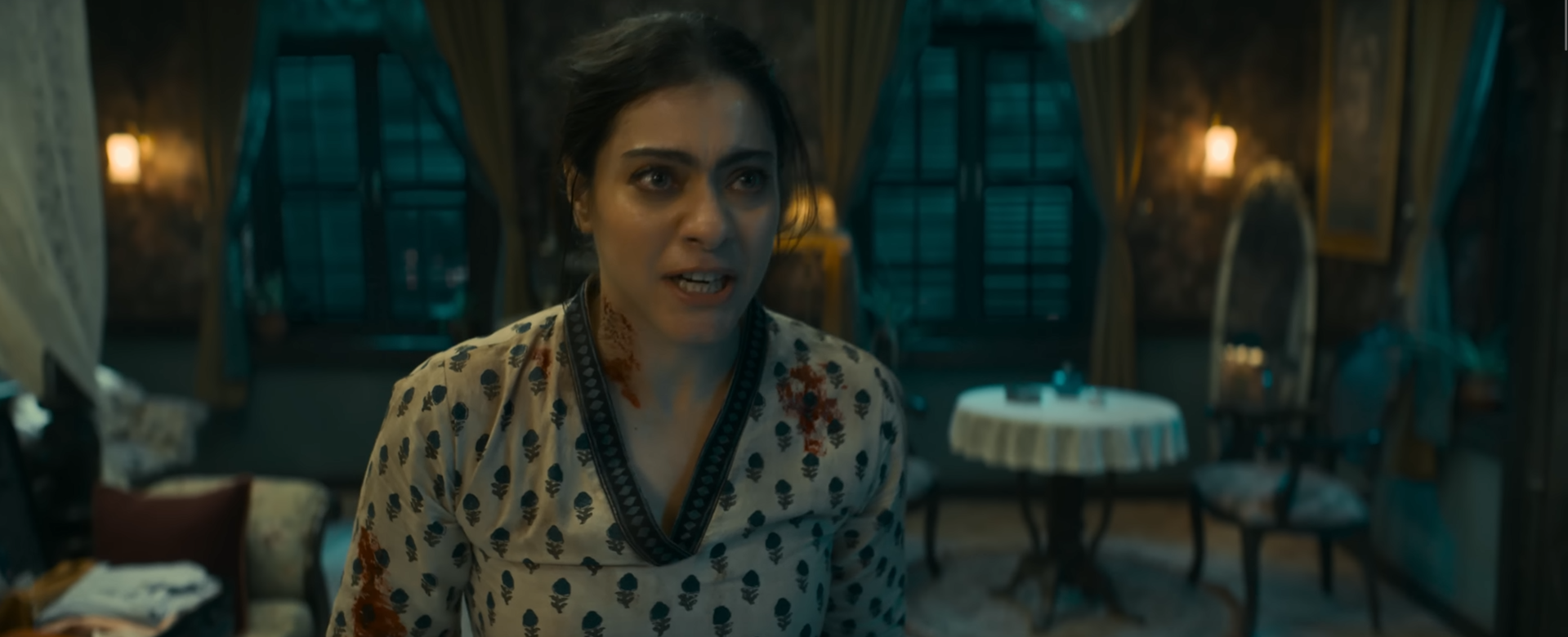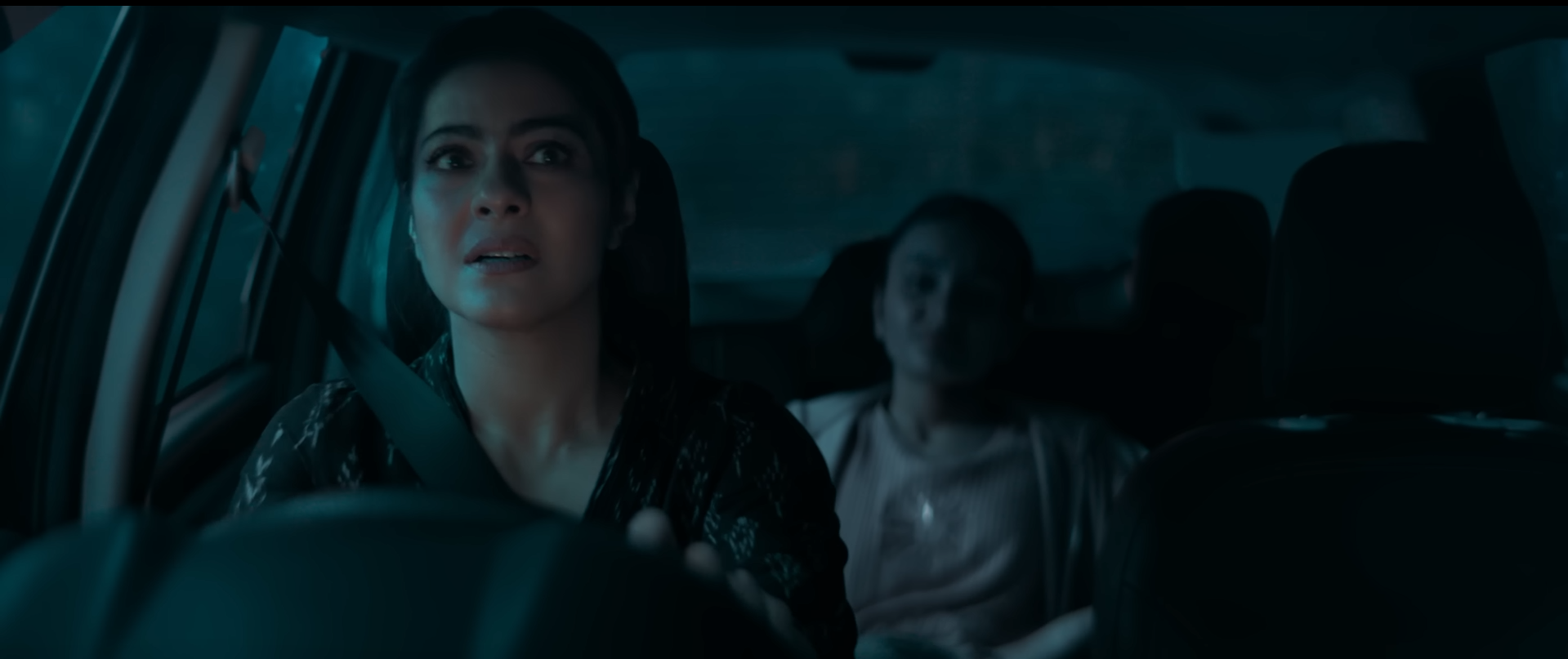Introduction:
“Maa”, directed by Vishal Furia and starring Kajol in her first full-fledged horror outing, aims to blend mythology, horror, and raw maternal emotion into a unique cinematic concoction. With a backdrop rooted in disturbing village customs and folklore, the film offers an intriguing premise but struggles to maintain consistency in narrative and tone.
Plot:
Set in the mysterious village of Chandrapur, West Bengal, the story follows Ambika (Kajol), a mother who finds herself at the center of a horrifying legacy. Her husband Shubankar (Indraneil Sengupta), born into a family burdened by a sinister custom of sacrificing girl children, returns to his native village after his father’s death—only to die suddenly himself. Left to deal with his estate, Ambika travels to Chandrapur with her daughter Shweta (Kherin Sharma), unknowingly stepping into a web of ancient beliefs and unrelenting supernatural forces. As the village’s dark secrets unravel, Ambika must confront not just a cursed tradition, but also her deepest fears to save her child.

Performance & Direction:
Kajol delivers a powerful and emotionally charged performance, transitioning convincingly from a composed wife and mother to a fiercely protective force. She anchors the film with grace and gravitas. Kherin Sharma and Rupkatha Chakraborty, as the young girls entangled in this dark tale, are equally commendable—bringing innocence and intensity in equal measure. Ronit Bose Roy lends reliable support as the village sarpanch, adding weight to the ensemble.
Vishal Furia attempts a genre-bending approach, and while the ambition is commendable, the execution falters. The direction oscillates between horror tropes, emotional beats, and mythological references without always tying them together cohesively.
What Works:
Kajol’s commanding performance is the emotional core of the film.
A unique blend of folklore and horror gives the movie a distinct flavor.
Atmospheric moments and a strong background score create genuine tension in parts.
Themes of maternal love provide emotional resonance amidst the scares.
What Doesn’t:
The plot lacks originality, echoing familiar horror-mythology templates.
Slow pacing in the first half and uneven narrative rhythm drag the story down.
Overreliance on visual effects and creature design weakens the fear factor, often feeling excessive rather than effective.
Unnecessary subplots and scenes dilute the main storyline and disrupt the flow.
Cinematography and editing feel serviceable at best, never enhancing the experience.

Final Words:
Maa is a film with its heart in the right place—a mother’s relentless love set against a backdrop of ancient horror. Kajol shines bright in an otherwise dimly lit narrative, and there are genuinely chilling moments. However, inconsistent storytelling and a lack of narrative innovation keep it from becoming a genre-defining entry. Worth a watch for Kajol and the emotional core, but temper your expectations.
Stay connected with us for the latest and exclusive updates on Hindi cinema—only here on Indori Nerd!
📲 Follow us on:
🔵 Facebook: https://t.ly/wlDW8
🐦 X (Twitter): https://t.ly/RhEuy
🧵 Threads: https://t.ly/Kb9xC
📸 Instagram: https://t.ly/uuCLg
▶️ YouTube: https://t.ly/FA5w_




